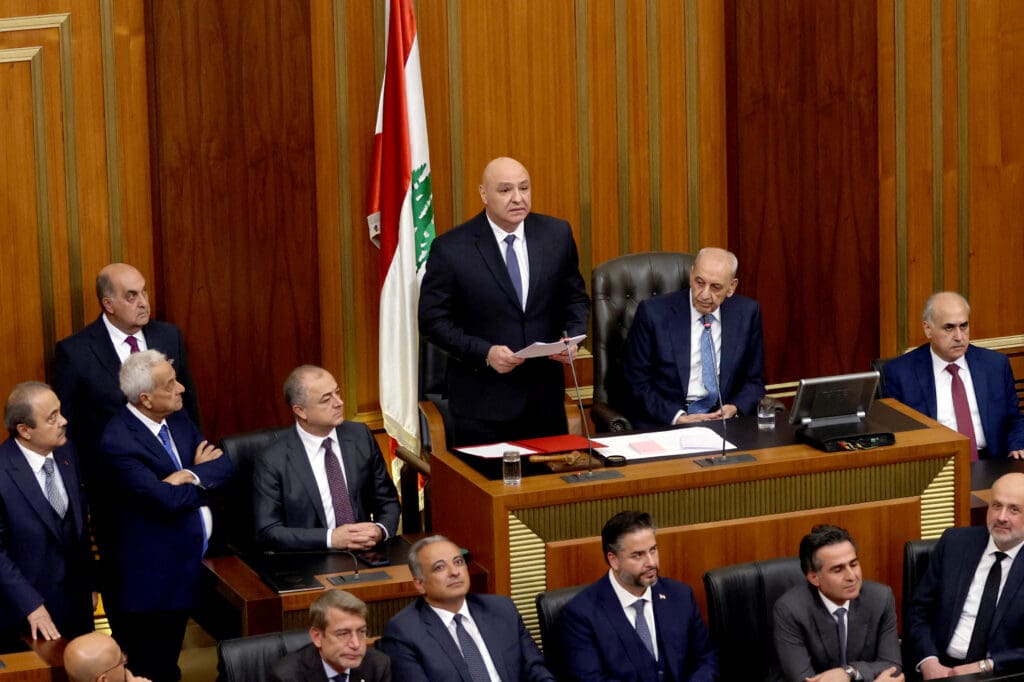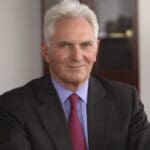The nomination of Nawaf Salam as Lebanon’s new prime minister alongside Joseph Aoun as president, after more than two years of political vacuum, is a momentous occasion heralding a new era for Lebanon. It can be an historical opportunity akin to the 1989 Taif Agreement, which formed the basis of ending Lebanon’s 15-year civil war and returning the country to political normalcy.
A major driver and enabler of the recent developments in Lebanon is the dramatic change in regional dynamics resulting from the war in Gaza, the collapse of the Assad-led Ba’ath regime in Syria, the severe degrading of Hizballah’s capabilities, and the effective demise of the Axis of Resistance, all of which provided a strong impetus for change. For the main regional powers in the Gulf Cooperation Council (GCC), Saudi Arabia, Qatar and the United Arab Emirates, this watershed moment provides an opportunity to displace Iranian influence from Lebanon, Iraq and Syria and restore their spheres of influence in these countries. Regional and international players have a strategic interest in reestablishing stability.
The sea change in Lebanon’s political landscape is a consequence of its political fragmentation. For too long, its failed political class demonstrated their lack of credibility and incompetence, and their inability to address Lebanon’s multiple crises by implementing much-needed reforms. They are now passing on the baton.
The Aoun-Salam duo inherits a heavy legacy, however. The period starting with the “Arab Spring” in 2011 was characterized by mismanaged institutions and unsustainable fiscal and monetary policies based on an over-valued exchange rate. This resulted in large twin government budgets, current account deficits and a massive build-up of debt. Lebanon’s central bank, Banque du Liban, ran a decades-long Ponzi scheme under its reigning governor, Riad Salameh (who is currently in jail). It eventually burst, depleting international reserves, generating a 99% depreciation of the exchange rate, hyperinflation, collapse of the banking system, and one of the deepest financial crises anywhere in modern times. Central bank losses exceeded 200% of GDP. Lebanon became a predominately cash-based and increasing dollarized economy. The ensuing poly-crisis—economic, monetary and financial, institutional, security, political and governance—compounded by the Beirut Port explosion and the Israel-Hizballah war, pushed Lebanon from being a fragile state to a failed one.
Despite the long road ahead for Aoun and Salam, there is reason to be optimistic. Joseph Aoun’s inaugural speech signaled much promise for a new Lebanon, with strong messages about political change, rebuilding the state and its institutions, a focus on judicial and administrative reform, the rule of law, accountability, and fighting endemic corruption. According to his plans, institutional and judicial reform will be complemented by a national anti-corruption campaign, a drive to increase transparency, while demanding accountability for the people responsible for Lebanon’s multiple crises and destroyed economy.
The pairing of Aoun and Salam is a complimentary one, marrying Aoun’s long military and security experience with Salam’s career as a leading international jurist and diplomat, untainted by local politics and corruption. Reform-minded and politically independent, the duo has the military-justice-governance credentials to lead the change that Lebanon demands.
A Heavy-Laden Reform Agenda
Lebanon’ new leadership has an arduous task ahead of it. First it must form of a cohesive, competent and effective cabinet. The key portfolios to address are justice, foreign affairs, defense and internal affairs, with finance driving the critical economic, fiscal and financial reforms.
With the Israel-Lebanon ceasefire agreement set to expire on Jan 26, the immediate need is to negotiate a permanent ceasefire to restore internal security and stability, enabling the return of the displaced to the south, the Bekaa Valley and other areas.
An international reconstruction fund will need to be constituted—under international monitoring—to finance Lebanon’s re-development and some $25 billion in reconstruction requirements.
Regarding macroeconomic stabilization and growth, the new government must initiate fiscal consolidation and tax reform, while modernizing and digitizing all government functions. It must also address administrative reform—over half of director level posts are vacant—downsizing the bloated public sector, restructuring and effecting good governance of the state-owned enterprises (SOEs) responsible for public services, such as electricity, water, transport and telecommunications. An independent national wealth fund, should be setup to professionally manage all SOEs and commercial public assets, in addition to future oil and gas revenues.
In order to initiate credible monetary reform, the new government must turn its attention to building a strong, professional and politically-independent central bank. Monetary policy should be directed at controlling inflation, accompanied by a flexible exchange rate regime. Appointment of a new BDL governor is an immediate priority, along with new deputy governors whose current term ends in June, as well as radical reform of the BDL’s governance are required to make it accountable. The Banking Control Commission, the Special Investigation Commission and the Capital Markets Authority, should be independently governed institutions, not governed by the Central Bank as currently setup. An independent Bank Resolution Authority is required to restructure the banking system based on bank recapitalization—starting with existing shareholders—mergers and acquisitions, and a bail-in of large depositors in order to maximize deposit recovery.
The political reforms, restructuring agenda (debt, banking, and the public sector) and implementation of the institutional and structural reforms mentioned here will allow for a revised International Monetary Fund program and the financing and a re-engagement of the Gulf Cooperation Council (GCC), enabling the reintegration of Lebanon into the Arab world. In essence, this is an historic opportunity for Lebanon, the GCC and the wider region. It should not be missed.


